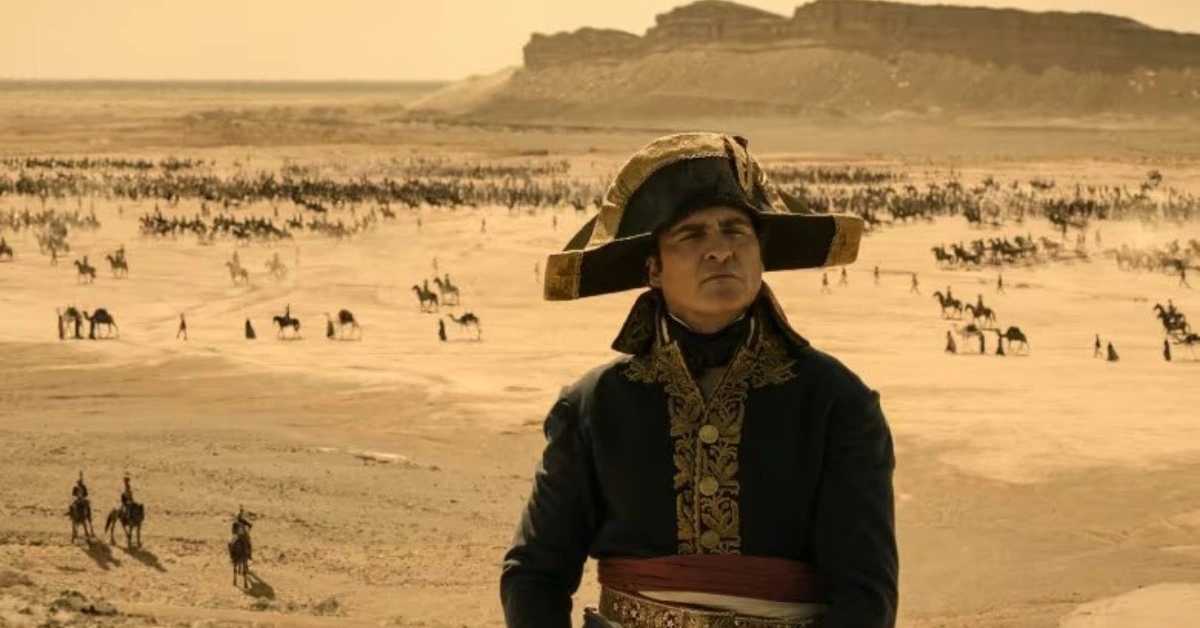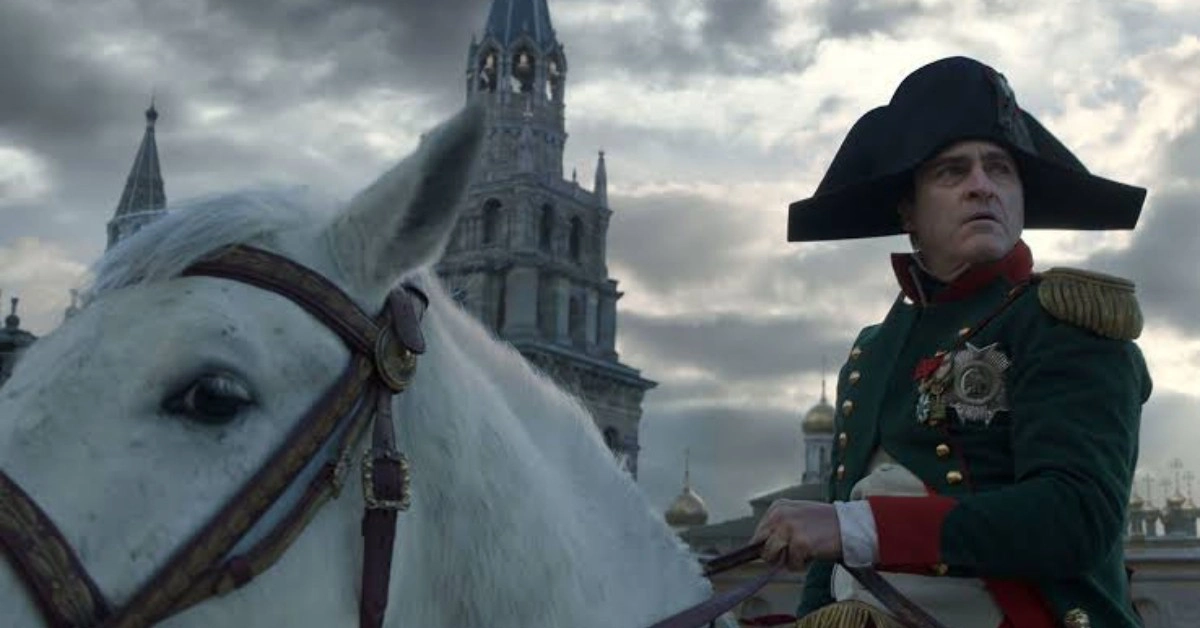The latest epic “Napoleon,” directed by Ridley Scott features famous actors Joaquin Phoenix and Vanessa Kirby in the lead roles. Although the film aims to unravel Napoleon’s legacy, it unfortunately suffers from inconsistencies that compromise its potential as a historical drama.
Speaking about the movie details, let me provide you with an overview;
A Captivating Start
The story of the film begins against the backdrop of the French Revolution, introducing Joaquin Phoenix as a Napoleon with a complex personality. From the Siege of Toulon to the Battle of Austerlitz, the film vividly portrays Napoleon’s triumphs, political maneuvers, and relentless pursuit of power.
However, despite its start, the film struggles with a narrative structure that hampers its overall storytelling.
Disruptions in the Storyline
Regrettably, “Napoleon” suffers from an uneven narrative that undermines its full potential. Of being presented, it feels like a collection of disjointed scenes.
This is especially noticeable in depicting Napoleon’s relationship with Josephine. Raises doubts about the credibility of their storyline.
A Performance Not Quite Aligned
While Joaquin Phoenix delivers a captivating portrayal of Napoleon, for parts, there are instances where it veers into self-indulgence bordering on parody.
The audience is left confused by the shifts, in tone between scenes making it difficult for them to decide whether they should feel sympathy or mockery towards the protagonist.
Although Kirby’s portrayal of Josephine aims for an approach, her character gets lost within the disjointed narrative of the film, further disconnecting the audience from the characters.
Also Read: India vs Qatar FIFA World Cup 2026 Qualifiers live streaming: When and where to watch free
Unfulfilled Potential
While it is commendable to have the ambition to uncover Napoleon’s legacy and expose the emptiness of his power, the film’s treatment feels like a shortcut in storytelling rather than a profound exploration of his character.
This missed opportunity leaves us wanting for an analysis of Napoleon’s influence and ultimately leads to a disappointing conclusion.
Visual Splendor and Emotional Void
In its pursuit of grandeur, “Napoleon” sacrifices connection with its viewers. The stunning scenes and choreographed battles lose their impact when they are detached from a meaningful narrative.
The only hope for redemption lies in a four-hour director’s cut that may address and fill in any gaps in coherence. Until then, “Napoleon” remains a narratively confused historical epic.
A Brief Historical Overview

This film revolves around Napoleon Bonaparte’s life during 1789. He was known as a commander who was fully aware of his own strength.
His excessive pride, desire for power, and ability to remain composed in situations made him an incredibly dangerous individual.
Despite the film’s battle scenes, it falls short in terms of making the audience emotionally invested in the outcome of the events primarily because Napoleon’s true intentions are not clearly conveyed.
A Different Perspective on Napoleon
Ridley Scott takes an approach by avoiding passing judgment on Napoleon. Instead, it presents a well-balanced perspective on this historical figure.
The movie delves into Napoleon’s love for Joséphine, subtly hinting at his transformation from a leader to an Emperor burdened by the weight of numerous victories.
Performances and Visuals
Joaquin Phoenix delivers a portrayal of Napoleon showcasing a performance that’s both captivating and unsettling. Vanessa Kirby shines as Josephine, effortlessly tackling the challenges of her role with mastery.
The film boasts cinematography complemented by a captivating score. Flawlessly captures the essence of the time period through its costumes and set designs.
Conclusion
Unfortunately, despite these achievements, “Napoleon” feels somewhat lacking in depth. While it is undoubtedly a must-watch film, it leaves you yearning for more—a sense that there are gaps within an unfinished portrait.

